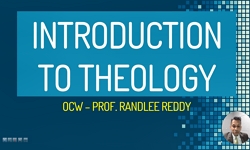The purpose of this study is to study anew the identify of pastoral counselling and the approach therein that includes care for the soul. There are several types of soul care in the tradition of the Church. Pastoral counselling is one kind of new car...
http://chineseinput.net/에서 pinyin(병음)방식으로 중국어를 변환할 수 있습니다.
변환된 중국어를 복사하여 사용하시면 됩니다.
- 中文 을 입력하시려면 zhongwen을 입력하시고 space를누르시면됩니다.
- 北京 을 입력하시려면 beijing을 입력하시고 space를 누르시면 됩니다.
https://www.riss.kr/link?id=A108582554
- 저자
- 발행기관
- 학술지명
- 권호사항
-
발행연도
2012
-
작성언어
Korean
-
주제어
사목상담 ; 상담 ; 신학 ; 사목 ; 영혼 돌봄 ; pastoral counselling ; counselling ; theology ; pastoral ; care of soul
-
KDC
235
-
자료형태
학술저널
-
수록면
113-170(58쪽)
- 제공처
- 소장기관
-
0
상세조회 -
0
다운로드
부가정보
다국어 초록 (Multilingual Abstract)
In counselling, theology is not something that is far removed from daily life. The thought of God that clients express in counselling is that their own anthropology is always revealed and closely connected to their daily life.
What counselling is, is that, clients come to the counsellor to ask for help, and as the counsellor helps the client to explore and understand himself or herself and his or her problems and predicaments, the counsellor in this process, helps the client to achieve the client's own aim, determined by his or her own psychological change. In counselling, there is a clear goal and a method to achieve that goal. The method contains the theory, the process of counselling and the procedure. First of all, the counsellor fully understands the counselling approach that he or she chooses so that the counsellor helps the client to solve their problems in exploring and understanding their problems by the basics of their approach.
Pastoral counselling began in America in the middle of the twentieth century when counselling came to be practised widely. Pastoral counselling, in relation to 'pastoral care', is an activity that is based on the values of theology and christianity. Especially, pastoral counselling is an activity that is understood in the big frame of 'pastoral'. Pastoral counselling is 'pastoral', and it is important to understand that what makes the pastoral elements determines what is the identity of pastoral counselling.
There is need to distinguish between the activities of pastoral care, pastoral counselling, pastoral psychotherapy, and spiritual direction. These four activities are the type that are being done in the church to help people but there are differences in their respective helping contents, extent, aim, and approach. Unlike pastoral care and spiritual direction that have a tradition in the church of care for the soul, pastoral counselling is a special type of care for the soul.
The theory and method the pastoral counsellors use to make decisions in pastoral counselling lead us to understand what pastoral counselling is. Because the 'pastor' is the pastoral counsellor ,the counselling cannot become pastoral counselling. Also, because the client who comes to counselling is a catholic, it does not mean that it is pastoral counselling. Being irrelevant to their religion, as well as the content of the counselling, what makes the decision regarding pastoral counselling is revealed in the whole counselling process. In general, the counsellor has the counselling theory and approach that are suitable to the counsellor so that he or she can help the client's problems. In conclusion, if the pastoral counsellor also has a strategic counselling approach, he or she can help the client more effectively in the frame of pastoral counselling.
The purpose of this study is to study anew the identify of pastoral counselling and the approach therein that includes care for the soul. There are several types of soul care in the tradition of the Church. Pastoral counselling is one kind of new care for the soul that is related to the recent development of psychology. In the term pastoral counselling itself, pastoral is understood as belonging to the subject of theology, and counselling as belonging to psychology.
In counselling, theology is not something that is far removed from daily life. The thought of God that clients express in counselling is that their own anthropology is always revealed and closely connected to their daily life.
What counselling is, is that, clients come to the counsellor to ask for help, and as the counsellor helps the client to explore and understand himself or herself and his or her problems and predicaments, the counsellor in this process, helps the client to achieve the client's own aim, determined by his or her own psychological change. In counselling, there is a clear goal and a method to achieve that goal. The method contains the theory, the process of counselling and the procedure. First of all, the counsellor fully understands the counselling approach that he or she chooses so that the counsellor helps the client to solve their problems in exploring and understanding their problems by the basics of their approach.
Pastoral counselling began in America in the middle of the twentieth century when counselling came to be practised widely. Pastoral counselling, in relation to 'pastoral care', is an activity that is based on the values of theology and christianity. Especially, pastoral counselling is an activity that is understood in the big frame of 'pastoral'. Pastoral counselling is 'pastoral', and it is important to understand that what makes the pastoral elements determines what is the identity of pastoral counselling.
There is need to distinguish between the activities of pastoral care, pastoral counselling, pastoral psychotherapy, and spiritual direction. These four activities are the type that are being done in the church to help people but there are differences in their respective helping contents, extent, aim, and approach. Unlike pastoral care and spiritual direction that have a tradition in the church of care for the soul, pastoral counselling is a special type of care for the soul.
The theory and method the pastoral counsellors use to make decisions in pastoral counselling lead us to understand what pastoral counselling is. Because the 'pastor' is the pastoral counsellor ,the counselling cannot become pastoral counselling. Also, because the client who comes to counselling is a catholic, it does not mean that it is pastoral counselling. Being irrelevant to their religion, as well as the content of the counselling, what makes the decision regarding pastoral counselling is revealed in the whole counselling process. In general, the counsellor has the counselling theory and approach that are suitable to the counsellor so that he or she can help the client's problems. In conclusion, if the pastoral counsellor also has a strategic counselling approach, he or she can help the client more effectively in the frame of pastoral counselling.
국문 초록 (Abstract)
상담에서 신학은 일상적 삶과 동떨어져 있지 않다. 상담의 현장에서 내담자가 표현하는 ‘신’에 대한 생각은 늘 자신만의 인간학을 드러내고 일상적인 삶과 밀접히 연결되어 있는 것이다. 상담이란 내담자가 상담자를 찾아와 도움을 청하고, 상담자는 내담자가 진솔하게 자기 자신과 자신의 문제와 어려움을 탐색하고 이해하도록 도와줌으로써, 내담자의 심리적 변화를 일으켜 자기결정에 의한 목표에 도달하도록 도와주는 과정이다.
상담에는 어떠한 뚜렷한 목표가 있고 그 목표를 달성하기 위한 방법이 있다. 그 방법 안에는 이론과 과정(절차)이 있다. 무엇보다도 상담자가 자신이 선택한 상담방법론을 충분히 이해해서, 그것을 바탕으로 내담자가 자신의 문제를 탐색하고 이해하도록 도와 문제해결을 돕는다.
‘사목상담’은 상담심리학이 본격적으로 태동하기 시작할 때인 20세기 중반에 미국에서 시작되었다. 사목상담은 ‘사목적 배려’와 관련이 있다. 사목상담은 신학적이고 그리스도교적인 가치관 안에서 일어나는 활동이다. 특히, 사목상담은 ‘사목’이라는 큰 틀에서 이해되는 활동이다. 사목상담은 ‘사목적’이고, 사목적인 결정요소를 이해하는 것이 사목상담의 정체성을 이해하는 데 중요하다.
사목상담의 정체성을 규명하기 위해서 사목배려, 사목상담, 사목심리치료, 그리고 영성지도의 활동 사이를 구별할 필요가 있다. 이 네 가지 활동들은 모두 교회 안에서 행해지는 돕는 형태의 활동이지만, 돕는 내용과 정도, 목적, 그리고 방법에 차이가 있다. 교회의 전통적인 영혼 돌봄의 형태인 사목적 배려와 영성지도와 달리 사목상담은 심리학과 신학을 바탕으로 하는 영혼 돌봄의 특수한 형태이다.
사목상담을 결정하는 이론과 방법론이 곧 사목상담의 정체성을 밝혀준다. 사목상담자가 ‘사목자’이기 때문에 사목상담이라고 결정할 수는 없다. 또한, 상담에 오는 내담자가 가톨릭신자라고 해서 사목상담이 성립되는 것도 아니다. 사목상담을 결정하는 것은 상담자나 내담자의 종교와는 무관하고, 또한 상담의 내용과도 상관없이 상담 과정 전반에 사목상담의 특성이 드러나는 것에 있다. 일반적으로 상담자는 자신의 성향과 가치관에 맞는 상담이론과 상담방법을 가지고서 내담자의 문제를 도와준다. 결론적으로, 사목상담자도 하나의 전략적 상담방법을 가지고 있다면 더욱 효과적으로 사목상담이라는 틀 안에서 내담자를 도와줄 수 있다.
이 연구의 목적은 영혼을 돌보는 사목상담의 정체성과 사목상담의 방법론을 새롭게 고찰해 보고자 한다. 교회의 전통 안에는 영혼의 돌봄에 관한 다양한 형태가 있다. 사목상담은 현대에 와...
이 연구의 목적은 영혼을 돌보는 사목상담의 정체성과 사목상담의 방법론을 새롭게 고찰해 보고자 한다. 교회의 전통 안에는 영혼의 돌봄에 관한 다양한 형태가 있다. 사목상담은 현대에 와서 심리학의 발달과 관계해서 대두된 새로운 영혼 돌봄의 형태이다. ‘사목상담’이라는 용어 자체에서 볼 수 있듯이, ‘사목’이라는 신학의 주제와 ‘상담’이라는 심리학의 주제가 이 용어 안에 함께 자리 잡고 있다.
상담에서 신학은 일상적 삶과 동떨어져 있지 않다. 상담의 현장에서 내담자가 표현하는 ‘신’에 대한 생각은 늘 자신만의 인간학을 드러내고 일상적인 삶과 밀접히 연결되어 있는 것이다. 상담이란 내담자가 상담자를 찾아와 도움을 청하고, 상담자는 내담자가 진솔하게 자기 자신과 자신의 문제와 어려움을 탐색하고 이해하도록 도와줌으로써, 내담자의 심리적 변화를 일으켜 자기결정에 의한 목표에 도달하도록 도와주는 과정이다.
상담에는 어떠한 뚜렷한 목표가 있고 그 목표를 달성하기 위한 방법이 있다. 그 방법 안에는 이론과 과정(절차)이 있다. 무엇보다도 상담자가 자신이 선택한 상담방법론을 충분히 이해해서, 그것을 바탕으로 내담자가 자신의 문제를 탐색하고 이해하도록 도와 문제해결을 돕는다.
‘사목상담’은 상담심리학이 본격적으로 태동하기 시작할 때인 20세기 중반에 미국에서 시작되었다. 사목상담은 ‘사목적 배려’와 관련이 있다. 사목상담은 신학적이고 그리스도교적인 가치관 안에서 일어나는 활동이다. 특히, 사목상담은 ‘사목’이라는 큰 틀에서 이해되는 활동이다. 사목상담은 ‘사목적’이고, 사목적인 결정요소를 이해하는 것이 사목상담의 정체성을 이해하는 데 중요하다.
사목상담의 정체성을 규명하기 위해서 사목배려, 사목상담, 사목심리치료, 그리고 영성지도의 활동 사이를 구별할 필요가 있다. 이 네 가지 활동들은 모두 교회 안에서 행해지는 돕는 형태의 활동이지만, 돕는 내용과 정도, 목적, 그리고 방법에 차이가 있다. 교회의 전통적인 영혼 돌봄의 형태인 사목적 배려와 영성지도와 달리 사목상담은 심리학과 신학을 바탕으로 하는 영혼 돌봄의 특수한 형태이다.
사목상담을 결정하는 이론과 방법론이 곧 사목상담의 정체성을 밝혀준다. 사목상담자가 ‘사목자’이기 때문에 사목상담이라고 결정할 수는 없다. 또한, 상담에 오는 내담자가 가톨릭신자라고 해서 사목상담이 성립되는 것도 아니다. 사목상담을 결정하는 것은 상담자나 내담자의 종교와는 무관하고, 또한 상담의 내용과도 상관없이 상담 과정 전반에 사목상담의 특성이 드러나는 것에 있다. 일반적으로 상담자는 자신의 성향과 가치관에 맞는 상담이론과 상담방법을 가지고서 내담자의 문제를 도와준다. 결론적으로, 사목상담자도 하나의 전략적 상담방법을 가지고 있다면 더욱 효과적으로 사목상담이라는 틀 안에서 내담자를 도와줄 수 있다.
목차 (Table of Contents)
- 서론
- Ⅰ. 상담에 대한 이해1.1. 상담의 정의1.2. 상담의 특성1.3.상담방법론의 구성요소
- Ⅱ. 사목상담의 현 위치2.1. 사목상담의 역사적 배경2.2. 사목상담의 독특성2.3. 사목상담의 현실적인 문제점
- Ⅲ. 사목상담의 정체성3.1. 사목상담의 정의와 특성3.2. 사목배려, 사목상담, 사목심리치료, 그리고 영성지도의 차이점
- Ⅳ. 사목상담 방법론의 새로운 제안4.1. 사목상담의 이론4.2. 사목상담의 과정
- 서론
- Ⅰ. 상담에 대한 이해1.1. 상담의 정의1.2. 상담의 특성1.3.상담방법론의 구성요소
- Ⅱ. 사목상담의 현 위치2.1. 사목상담의 역사적 배경2.2. 사목상담의 독특성2.3. 사목상담의 현실적인 문제점
- Ⅲ. 사목상담의 정체성3.1. 사목상담의 정의와 특성3.2. 사목배려, 사목상담, 사목심리치료, 그리고 영성지도의 차이점
- Ⅳ. 사목상담 방법론의 새로운 제안4.1. 사목상담의 이론4.2. 사목상담의 과정
- 결론
동일학술지(권/호) 다른 논문
-
십계명(3~10계명)에 드러난 인권보호 정신 -탈출 20,8-17; 신명 5,12-24의 사회-신학적 고찰
- 수원가톨릭대학교 이성과신앙연구소
- 이용화(Lee, Yonghwa)
- 2012
-
- 수원가톨릭대학교 이성과신앙연구소
- 이혜정(Lee, Hyejeong)
- 2012
-
- 수원가톨릭대학교 이성과신앙연구소
- 徐復觀 지음
- 2012




 RISS
RISS







